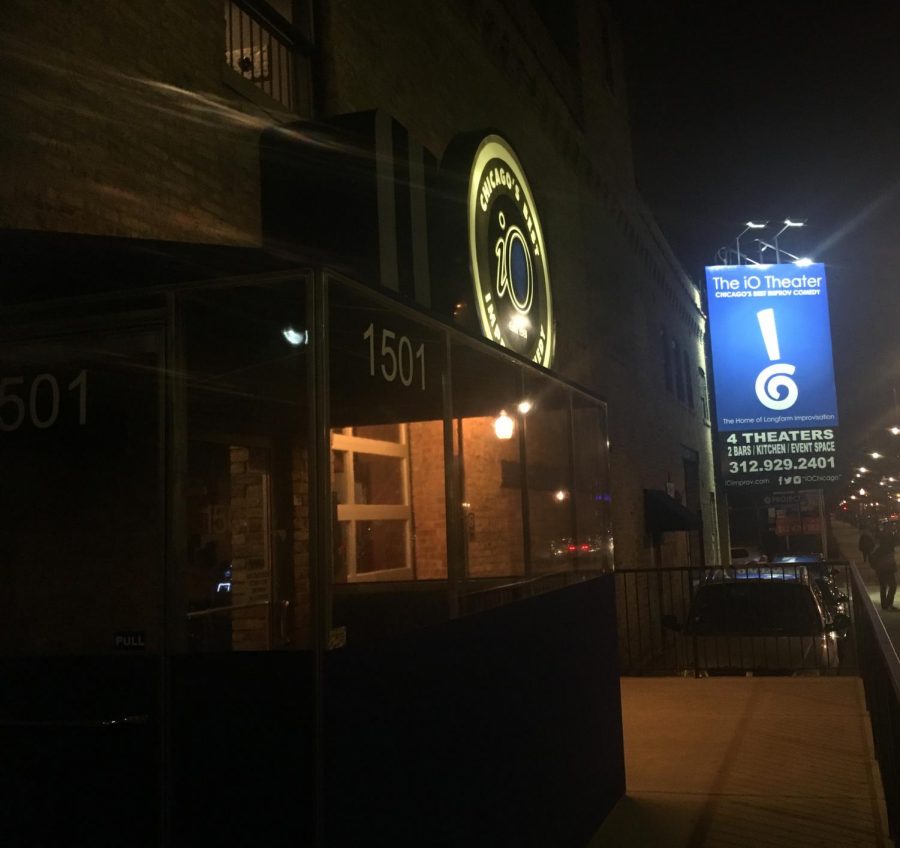Sexism isn’t funny—women unify for empowerment through comedy
December 12, 2016
“One of the last gigs I did in New Jersey, I was the only female comic on the bill last night, I was actually the closer to the show and they kept calling me the ‘token female’ of the night,” said Carolyn Paine, an actress, dancer, writer and comedian.
Paine said there is no funny business in being a a female comedian. Improvisers, writers and stand-up comedians alike often feel discouraged when taking the mic next to their male counterparts.
“There is sexism in comedy, and it’s everywhere,” said Mary Cait Walthal, a performer and teacher at iO Chicago. “Comedy has been historically male-dominated, and [the industry is] still recovering from that. It’s changing slowly.”
On a similar note, Stassines added that though there is sexism in all fields, the sexism in comedy results in “some interesting characters.” To some comedians, comedy is just another way of saying harmful things without being judged for it, she said.
“There are some men that say jokes that are offensive just because they think they are allowed to because they are comedians.” Stassines said.
Paine has traveled all over the country performing comedy with famous comedians such as Hannibal Buress. Paine, who is based in Hartford, Connecticut, and had a fellowship in writing and performing at Second City in Chicago, has had bizarre encounters with her male co-performers as well as audience members.
“In stand-up work especially, I have found that it’s still very much male-centered,” said Paine. “You either feel like everyone is trying to hit on you in the dressing room or that you are the odd woman out.”
Being the “odd woman out,” Shelby Quinn from Los Angeles, said casting directors there had fixed ideas of her playing “the traditional male” or the “fat, funny friend” in scenes, which forced her to choose a different career path in political science.
It was not until graduation that Quinn realized her true calling was in performing. After being urged on by her father who told her to take a risk, Quinn moved to Chicago to break into the comedy scene.
“Being a woman, we come from such a different mindset [that] we have to overcome certain obstacles,” Quinn said. “To a degree, women or minority performers work so much harder to achieve our goals or get recognition.”
The comedians interviewed said it is important for them to stand up for themselves and provided tips for dealing with sexism or harassment.
“If people on your team are making moves that seem judgmental of the things that you are doing, I would talk to them about it or get the f–k out of there because you don’t have to play with people that don’t support you onstage,” Walthal said. “If there is sexism in the audience, there is only so much control we have over that.”
When people ignore these problems, it only makes the situation worse, explained Stassines. She said having open dialogues about the importance of diversity and how to not perpetuate sexism or homophobia would be beneficial.
“When I’m onstage, I’m doing it because it’s something I love and I feel good [doing], so if someone comes in and makes my space unsafe, I get angry,” Stassines said. “I always do it through my character, but I definitely shut them down.”
Comedians and their sets are so unpredictable, it is sometimes difficult to shut harmful jokes down. Surrounding herself with other strong women in comedy also helps, Stassines added.
“Glass Basement,” an improv show at iO Chicago, is an example of female empowerment through a team of women.
“We wanted to create a safe space for anybody to come and talk and express themselves,” said Mary Catherine Curran, a performer and teacher at iO. “We want to make sure that we keep pushing forward and take steps to make things better, but still having a good time and be open.”
In comedy, a “safe space” is an environment in which performers feel comfortable to create. Curran, who has dealt with harassment, is committed to creating safe environments for all comedians and its audience.
“It made me want to make sure that when I leave this place, no woman or LGBT person ever has to experience, ever experience harassment in this place,” she said.
No matter how much pressure is being put on a comedian, the most important thing is to always stay true to themselves and their branding, Paine said.
“If this is what you love to do, you’re already putting yourself out there,” Paine said. You just have to continue to do that.”
To provide help for women performers dealing with harassment, Chicago comedian Victoria Elena Nones created Women in Comedy. Created in 2015, Women in Comedy is a non-profit organization in which women comedians are able to share their experiences while receiving help and support from fellow performers.
“It’s 2016 and yet, women in the comedy industry are struggling to exist and forge careers within a system that is broken,” said Nones in a blog post from the Women in Comedywebsite. “So, we’ve decided to create our own system. We are building a national army, and ‘A Love Letter to Myself’ is the kickoff to celebrating women’s comedic voices in safe spaces.”
In the past, it has been easier for men to break into the comedy scene, but now it is starting to be the opposite, noted Stassines.
In 2013, the New York comedy club Carolines on Broadway stated that since the club opened in 1892, only 25 percent of performers have been female, according to a July 11 Forbes article. Since then, Amy Schumer was the first women to appear on Forbes Highest-Paid Comedians for the 2016 list.
“People are expecting more from each other, and I think that we are doing great,” Stassines said.








